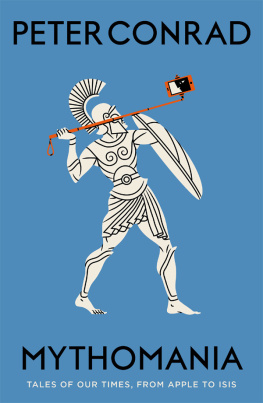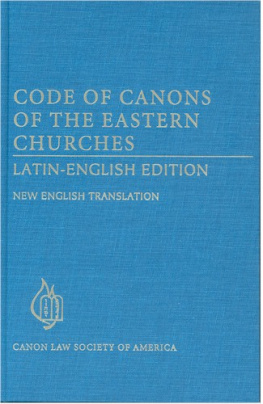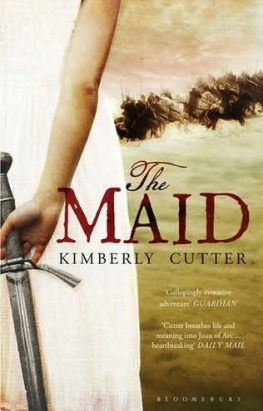To-morrow
By Joseph Conrad
Start Publishing LLC
Copyright 2012 by Start Publishing LLC
All rights reserved, including the right to reproduce this book or portions thereof in any form whatsoever.
First Start Publishing eBook edition October 2012
Start Publishing is a registered trademark of Start Publishing LLC
Manufactured in the United States of America
10 9 8 7 6 5 4 3 2 1
ISBN 978-1-63355-079-7
Kennedy is a country doctor, and lives in Cole- brook, on the shores of Eastbay. The high ground rising abruptly behind the red roofs of the little town crowds the quaint High Street against the wall which defends it from the sea. Beyond the sea-wall there curves for miles in a vast and regular sweep the barren beach of shingle, with the village of Brenzett standing out darkly across the water, a spire in a clump of trees; and still further out the perpendicular column of a lighthouse, look- ing in the distance no bigger than a lead pencil, marks the vanishing-point of the land. The coun- try at the back of Brenzett is low and flat, but the bay is fairly well sheltered from the seas, and occa- sionally a big ship, windbound or through stress of weather, makes use of the anchoring ground a mile and a half due north from you as you stand at the back door of the "Ship Inn" in Brenzett. A dilapidated windmill near by lifting its shattered arms from a mound no loftier than a rubbish heap, and a Martello tower squatting at the water's edge half a mile to the south of the Coastguard cottages, are familiar to the skippers of small craft. These are the official seamarks for the patch of trust- worthy bottom represented on the Admiralty charts by an irregular oval of dots enclosing several fig- ures six, with a tiny anchor engraved among them, and the legend "mud and shells" over all.
The brow of the upland overtops the square tower of the Colebrook Church. The slope is green and looped by a white road. Ascending along this road, you open a valley broad and shal- low, a wide green trough of pastures and hedges merging inland into a vista of purple tints and flowing lines closing the view.
In this valley down to Brenzett and Colebrook and up to Darnford, the market town fourteen miles away, lies the practice of my friend Kennedy. He had begun life as surgeon in the Navy, and afterwards had been the companion of a famous traveller, in the days when there were continents with unexplored interiors. His papers on the fauna and flora made him known to scientific socie- ties. And now he had come to a country practice --from choice. The penetrating power of his mind, acting like a corrosive fluid, had destroyed his ambition, I fancy. His intelligence is of a scientific order, of an investigating habit, and of that unappeasable curiosity which believes that there is a particle of a general truth in every mys- tery.
A good many years ago now, on my return from abroad, he invited me to stay with him. I came readily enough, and as he could not neglect his patients to keep me company, he took me on his rounds--thirty miles or so of an afternoon, some- times. I waited for him on the roads; the horse reached after the leafy twigs, and, sitting in the dogcart, I could hear Kennedy's laugh through the half-open door left open of some cottage. He had a big, hearty laugh that would have fitted a man twice his size, a brisk manner, a bronzed face, and a pair of grey, profoundly attentive eyes. He had the talent of making people talk to him freely, and an inexhaustible patience in listening to their tales.
One day, as we trotted out of a large village into a shady bit of road, I saw on our left hand a low, black cottage, with diamond panes in the windows, a creeper on the end wall, a roof of shingle, and some roses climbing on the rickety trellis-work of the tiny porch. Kennedy pulled up to a walk. A woman, in full sunlight, was throwing a dripping blanket over a line stretched between two old ap- ple-trees. And as the bobtailed, long-necked chest- nut, trying to get his head, jerked the left hand, covered by a thick dogskin glove, the doctor raised his voice over the hedge: "How's your child, Amy?"
I had the time to see her dull face, red, not with a mantling blush, but as if her flat cheeks had been vigorously slapped, and to take in the squat figure, the scanty, dusty brown hair drawn into a tight knot at the back of the head. She looked quite young. With a distinct catch in her breath, her voice sounded low and timid.
"He's well, thank you."
We trotted again. "A young patient of yours," I said; and the doctor, flicking the chest- nut absently, muttered, "Her husband used to be."
"She seems a dull creature," I remarked list- lessly.
"Precisely," said Kennedy. "She is very pas- sive. It's enough to look at the red hands hanging at the end of those short arms, at those slow, prom- inent brown eyes, to know the inertness of her mind --an inertness that one would think made it ever- lastingly safe from all the surprises of imagina- tion. And yet which of us is safe? At any rate, such as you see her, she had enough imagination to fall in love. She's the daughter of one Isaac Foster, who from a small farmer has sunk into a shepherd; the beginning of his misfortunes dating from his runaway marriage with the cook of his widowed father--a well-to-do, apoplectic grazier, who passionately struck his name off his will, and had been heard to utter threats against his life. But this old affair, scandalous enough to serve as a motive for a Greek tragedy, arose from the simi- larity of their characters. There are other trage- dies, less scandalous and of a subtler poignancy, arising from irreconcilable differences and from that fear of the Incomprehensible that hangs over all our heads--over all our heads...."
The tired chestnut dropped into a walk; and the rim of the sun, all red in a speckless sky, touched familiarly the smooth top of a ploughed rise near the road as I had seen it times innumerable touch the distant horizon of the sea. The uniform brownness of the harrowed field glowed with a rosy tinge, as though the powdered clods had sweated out in minute pearls of blood the toil of uncounted ploughmen. From the edge of a copse a waggon with two horses was rolling gently along the ridge. Raised above our heads upon the sky-line, it loomed up against the red sun, triumphantly big, enor- mous, like a chariot of giants drawn by two slow- stepping steeds of legendary proportions. And the clumsy figure of the man plodding at the head of the leading horse projected itself on the back- ground of the Infinite with a heroic uncouthness. The end of his carter's whip quivered high up in the blue. Kennedy discoursed.
"She's the eldest of a large family. At the age of fifteen they put her out to service at the New Barns Farm. I attended Mrs. Smith, the tenant's wife, and saw that girl there for the first time. Mrs. Smith, a genteel person with a sharp nose, made her put on a black dress every afternoon. I don't know what induced me to notice her at all. There are faces that call your attention by a cu- rious want of definiteness in their whole aspect, as, walking in a mist, you peer attentively at a vague shape which, after all, may be nothing more cu- rious or strange than a signpost. The only pecu- liarity I perceived in her was a slight hesitation in her utterance, a sort of preliminary stammer which passes away with the first word. When sharply spoken to, she was apt to lose her head at once; but her heart was of the kindest. She had never been heard to express a dislike for a single human being, and she was tender to every living creature. She was devoted to Mrs. Smith, to Mr. Smith, to their dogs, cats, canaries; and as to Mrs. Smith's grey parrot, its peculiarities exercised upon her a posi- tive fascination. Nevertheless, when that outland- ish bird, attacked by the cat, shrieked for help in human accents, she ran out into the yard stopping her ears, and did not prevent the crime. For Mrs. Smith this was another evidence of her stupidity; on the other hand, her want of charm, in view of Smith's well-known frivolousness, was a great rec- commendation. Her short-sighted eyes would swim with pity for a poor mouse in a trap, and she had been seen once by some boys on her knees in the wet grass helping a toad in difficulties. If it's true, as some German fellow has said, that without phos- phorus there is no thought, it is still more true that there is no kindness of heart without a certain amount of imagination. She had some. She had even more than is necessary to understand suffer- ing and to be moved by pity. She fell in love un- der circumstances that leave no room for doubt in the matter; for you need imagination to form a notion of beauty at all, and still more to discover your ideal in an unfamiliar shape.

















